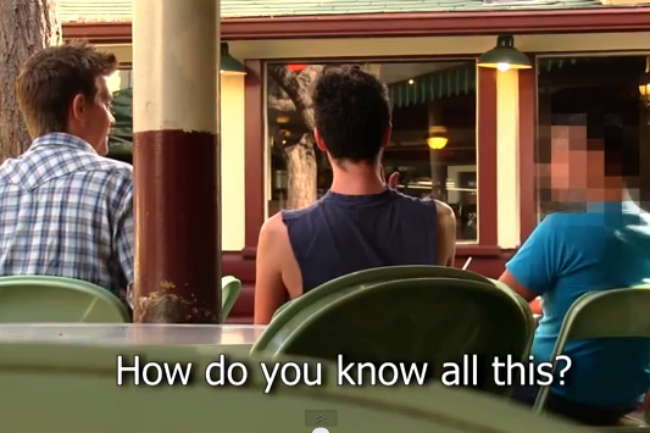
We’ve been told. And told and told and told: Social networking is not private, the Internet doesn’t forget, and apps can do nearly anything they want with our data. But despite the many warnings, we’re consistently still surprised by how much our digital profiles reveal.

Social Media Experiment, a YouTube video created by YouTuber Jack Vale, makes it as undeniable as ever how oblivious we are. Using nothing but geo-tagged Instagram, Twitter, and Facebook posts, he found users in his area and approached them, asking questions related to things they’d uploaded as if he were prescient. The results are hilarious, sobering, and definitely a little sad. Moral of the story: Everyone knows everything about you and it’s totally your fault.


